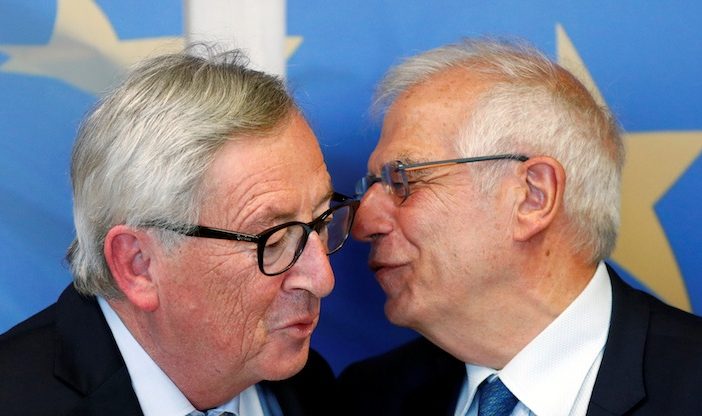The Africa Report
By Ben Fox
Spain, which is pushing for closer ties with North Africa, was one of the big winners from the carve up of European Union (EU) top jobs following May’s European Parliament elections.
[This article is the final part of our series on Europe-Africa relations. Follow the links for our overview on Europe’s Africa stance, and articles on UK/Africa, France/Africa, and Germany/Africa relations.]
Spain’s foreign minister Josep Borrell, the nominee to replace Italy’s Federica Mogherini as the EU’s foreign affairs high representative, is likely to continue to prioritise migration control and pacts between the EU and North African countries.
Morocco is set to be first in line.
- After seeing a series of diplomatic breakthroughs in 2019, on the back of a sustained and well-financed public relations campaign, the country will host the annual EU-Africa Business Forum in Marrakech in late November.
- In late June, Mogherini and Morocco’s minister of foreign affairs and international cooperation Nasser Bourita agreed to begin talks on a new trade deal based around a “Euro-Moroccan Partnership for Shared Prosperity”, with Brussels also offering the prospect of visa-free access to the EU as a sweetener. The trade talks are expected to start immediately after the new Commission takes office in November and dominate the next 18 months.
- The new deal will also offer the prospect of Morocco being integrated into a number of new EU programmes and agencies, ranging from university research to maritime security and energy and climate change.
A rapprochement was already underway despite concerns over Morocco’s disputed claims to sovereignty over Western Sahara.
- In February, the European Parliament agreed on a revised EU-Morocco fisheries agreement, while 15 months of talks on an agricultural accord also concluded in the first half of the year.
- In July, the Moroccan navy participated in training exercises with the European Maritime Force, a group comprising vessels from France, Italy, Portugal and Spain. The cooperation has also migration and human trafficking goals, and included discussions about special forces and maritime capabilities, as well as increasing cyber security collaboration.
Spain and France have been pushing Morocco’s case on both trade and further political cooperation – specifically on security and migration – for several years, circumventing several judgements in 2017 and 2018 by the Luxembourg-based European Court of Justice, which ruled that EU-Morocco trade accords could not apply to Western Sahara.
Following a meeting with Bourita in Rabat in June, before his nomination for the EU foreign affairs post, Borrell emphasised the “strategic importance of Morocco for Europe” and offered Spanish support to “intensify Moroccan-European relations in all areas”. Borrell also called for increased EU funding for Morocco to manage migration.
“Morocco wants to please Brussels and the rest of Africa,” says Geert Laporte, deputy director of the European Centre for Development Policy Management, a think tank. That means that the proposal agreed by EU leaders in June 2018 of setting up “regional disembarkation platforms” for migrants on African soil, which Morocco led the African Union in rejecting, will have to be replaced with another idea.
The bottom line: Rabat appears to be aware that it has a strong hand to play in negotiations, both on migration and trade. “Morocco is in favour of Europe. Morocco has a trade deficit with Europe of €700m. ($768m). We would like more European investments in Morocco,” a foreign ministry official tells The Africa Report.







